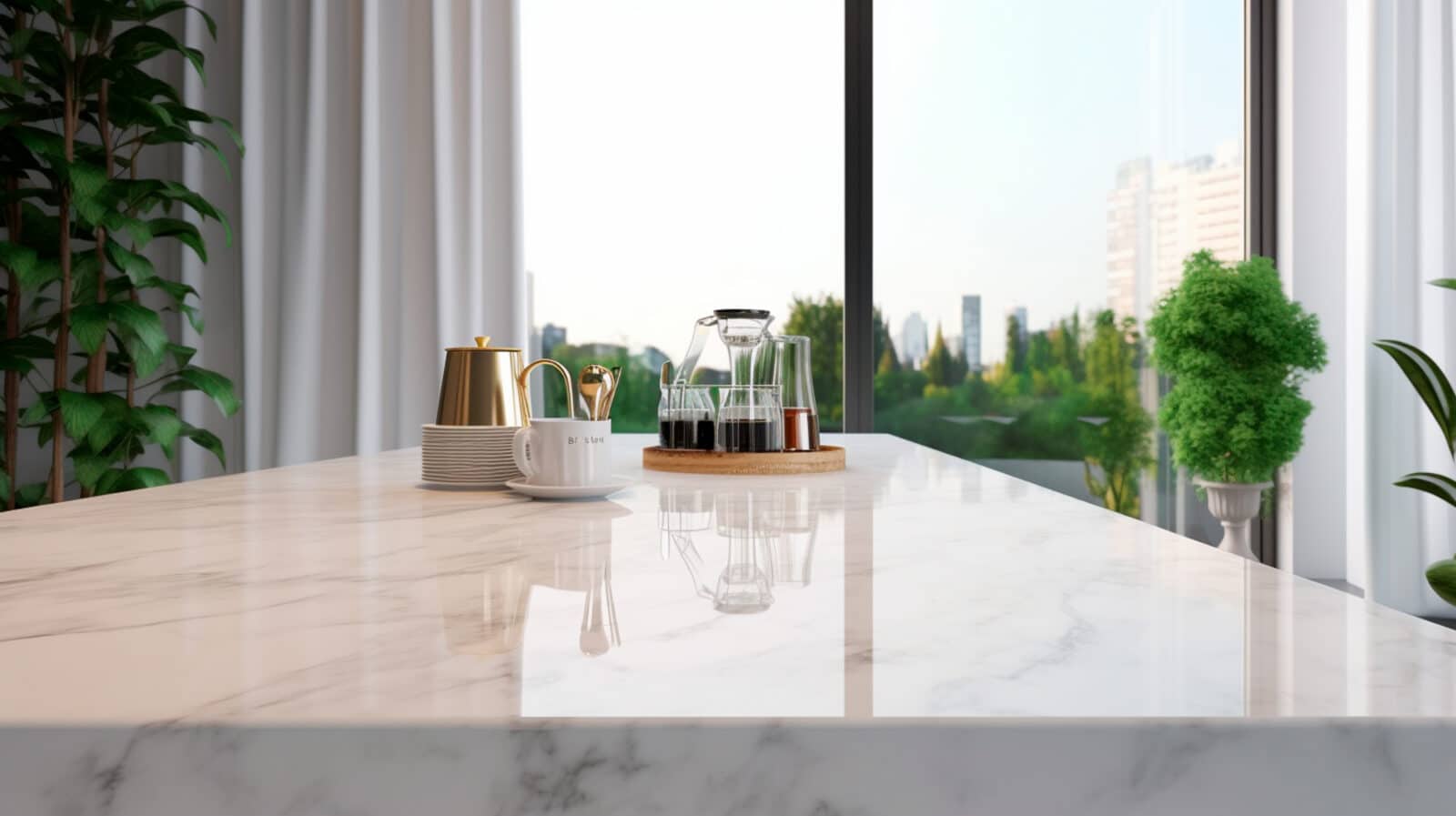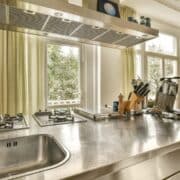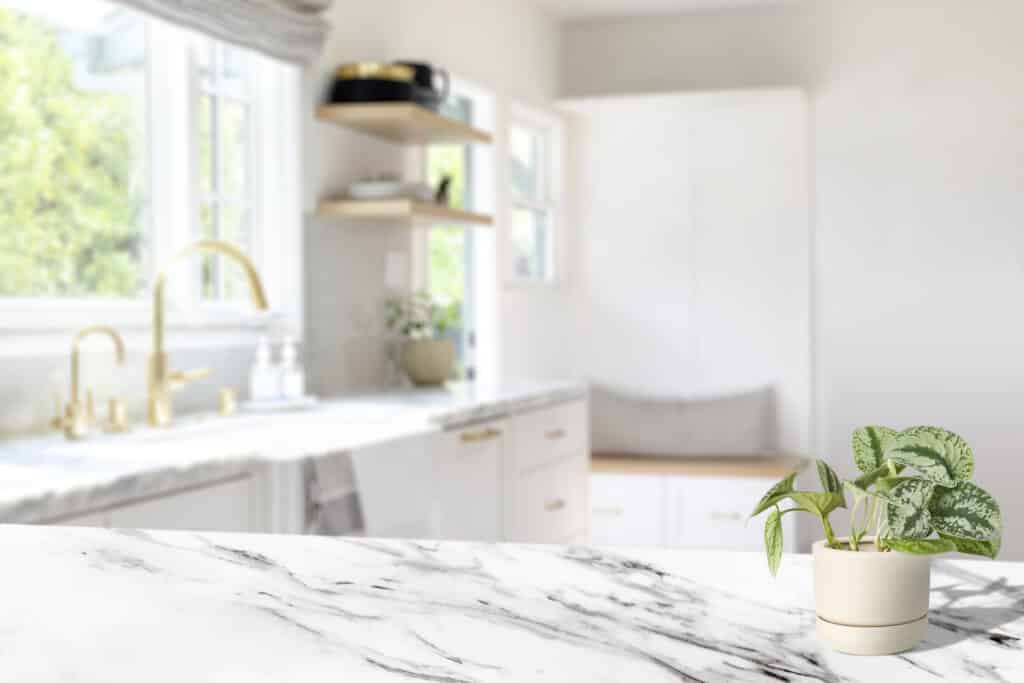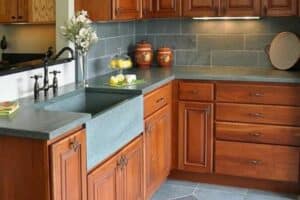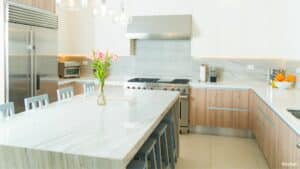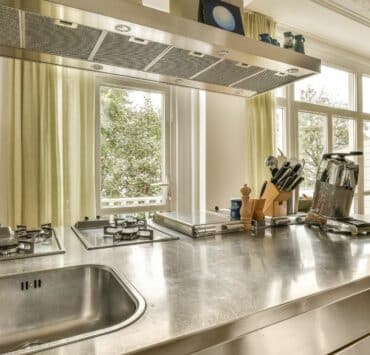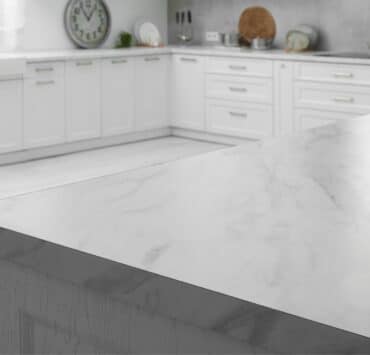Every modern homeowner dreams of a kitchen that doesn’t just serve its purpose but also stands as a fashionable statement. In that sense, quartz countertops could be your perfect choice. They’ve rapidly gained popularity among young homeowners for their mix of durability, stunning aesthetics, and fuss-free maintenance.

What Makes Quartz Countertops Stand Out?
Quartz countertops are popular because they are beautiful and tough. They are made by mixing natural quartz stone with resins, making a surface that doesn’t soak up water and is hard to scratch or stain. What’s really special about quartz is that it comes in many colors and patterns, so it can look perfect in any home.

The Secret Ingredient: Understanding Quartz
The reason why quartz countertops are so liked is because of what they’re made of. They are mostly made from ground quartz (about 90-95%) mixed with a little bit of resin, colors, and plastics (about 5-10%). This mix makes a countertop that is tougher and lasts longer than many natural stones. Because of how strong it is, quartz is a great choice for busy places in your home, like the kitchen.

More Than Just Functionality: Aesthetic Appeal of Quartz
Quartz countertops are more than just useful; they really make a space look good. They come in lots of colors and styles, from simple blacks and whites to bright reds and calm blues, so you can find one that fits any room’s look. What’s cool about quartz is that it can mimic the look of natural stones like granite and marble. Plus, it’s more consistent in appearance and easier to take care of.

Installing Quartz Countertops: DIY Guide
Installing quartz countertops is usually done by professionals because they are heavy and delicate. But, if you’re a DIY enthusiast wanting to tackle this project, here’s a simplified guide. Remember, doing it yourself might affect the warranty, so check with your supplier first.
- Measure Carefully: Get the exact dimensions of your space. Quartz isn’t as forgiving as other materials and can’t be easily trimmed or adjusted once it’s on-site.
- Gather Tools and Materials: You’ll need a level, drill, screws, silicone adhesive, caulking gun, and possibly a saw for cutting sink holes (if not pre-cut).
- Prepare the Cabinets: Ensure your base cabinets are level and sturdy enough to support the weight of the quartz. Use shims to adjust for any unevenness.
- Dry Fit the Quartz: Before applying any adhesive, place the quartz on the cabinets to ensure it fits. If your countertop comes with any sink or faucet cutouts, make sure those align properly.
- Apply Adhesive: Once you’re sure of the fit, lift the countertop back off and apply silicone adhesive to the top edges of the cabinets.
- Set the Countertop: Carefully lower the quartz back into place. Press down gently but firmly to ensure a good bond to the adhesive.
- Seal Joints: If your countertop consists of multiple pieces, you’ll need to apply a seam filler or silicone to the joints to seal them.
- Install Sink and Faucets: Follow the manufacturer’s instructions for installing your sink and faucets. This usually involves applying a sealant and securing them with clips or brackets.
- Final Touches: Clean any excess adhesive or sealant with a damp cloth before it dries. You may also need to apply caulking around the edges where the countertop meets the wall or backsplash.
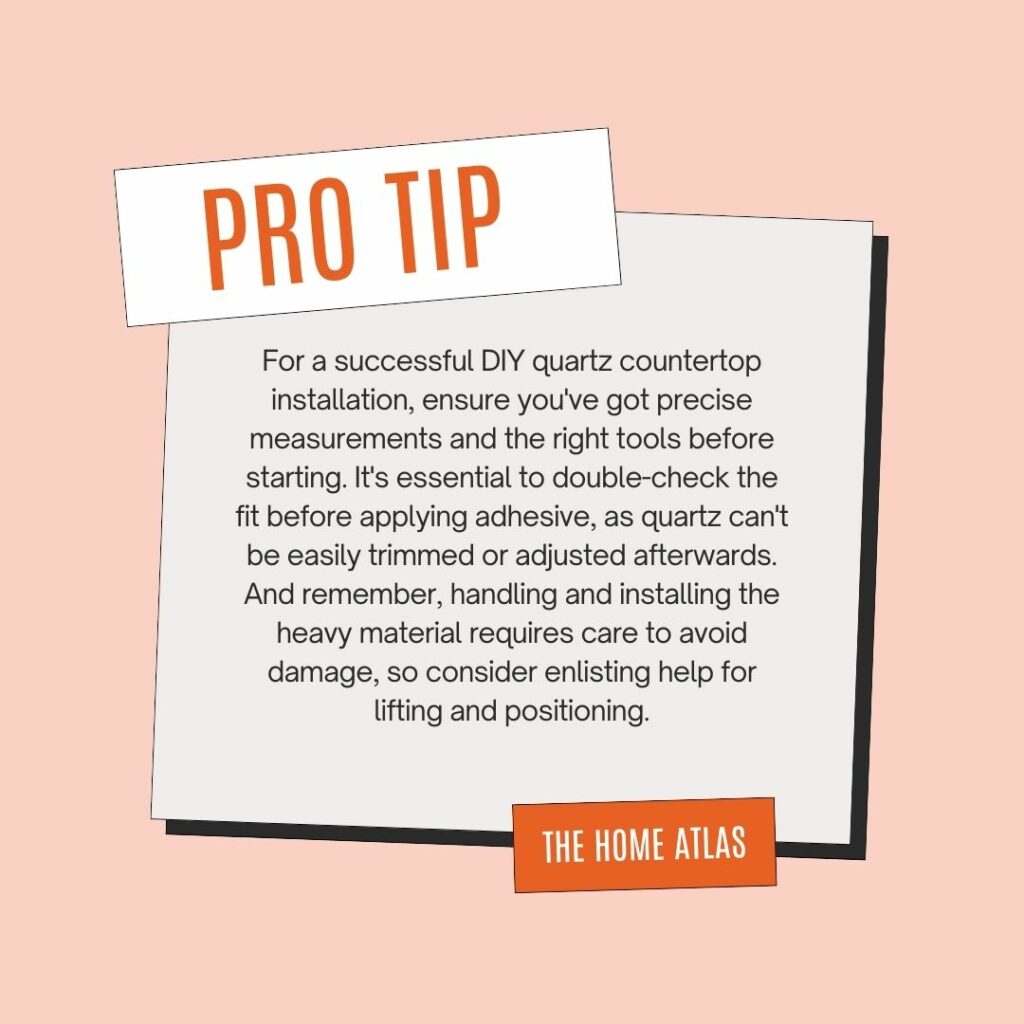
Remember, while DIY installation can save on costs, it comes with risks, especially for something as heavy and precise as quartz countertops. If you’re not confident in your ability to handle the project, it’s worth investing in professional installation to ensure a job well done.
How to Care for Your Quartz Countertops
Taking care of quartz countertops involves simple routine maintenance:
- Daily Cleaning: Just use a soft cloth and mild soap. No need for fancy cleaners.
- No Sealing Required: Unlike natural stone, quartz doesn’t soak up water, so you don’t have to seal it.
- Protect from Scratches: Even though it’s tough, use cutting boards to avoid scratches.
- Guard Against Heat: Place hot pots on trivets, not directly on the quartz, to prevent heat damage.
The Cost Aspect: Is It Worth the Investment?
While quartz countertops are more expensive upfront compared to other countertop materials, it’s important to consider their longevity and low maintenance. They stand up well against daily wear and tear, eliminating the need for regular replacements. This makes them a cost-effective choice in the long run.
Generally, the price for quartz countertops ranges between $50 to $200 per square foot installed.
The cost can be broken down into the price of the quartz slab itself, which tends to range from $40 to $170 per square foot not including installation, and the labor costs for fabrication and installation, which are about $10 to $30 per square foot.
High-quality quartz can cost between $80 to $170 per square foot, mid-quality quartz ranges from $65 to $80 per square foot, and low-quality quartz ranges from $40 to $65 per square foot, not including the installation costs.

FAQ Section
What are the advantages of quartz?
Quartz countertops offer numerous benefits, including durability, scratch and stain resistance, low maintenance, and a wide variety of colors and patterns.
How do I clean and maintain my quartz countertop?
Clean quartz countertops with a soft cloth and mild detergent. They don’t require sealing. Use cutting boards and trivets to avoid potential scratches and heat damage.
Can quartz countertops withstand heat?
Quartz countertops can handle heat to some degree. However, it is always best to use trivets or heat pads to protect the surface from hot pots and pans.
Do quartz countertops require professional installation?
Yes, due to the weight and delicacy of quartz, professional installation is generally recommended. This ensures proper handling and preserves warranty conditions.
Is the investment in quartz countertops cost-effective?
While quartz has a higher upfront cost than some other countertop materials, its durability and low maintenance make it cost-effective over time.
